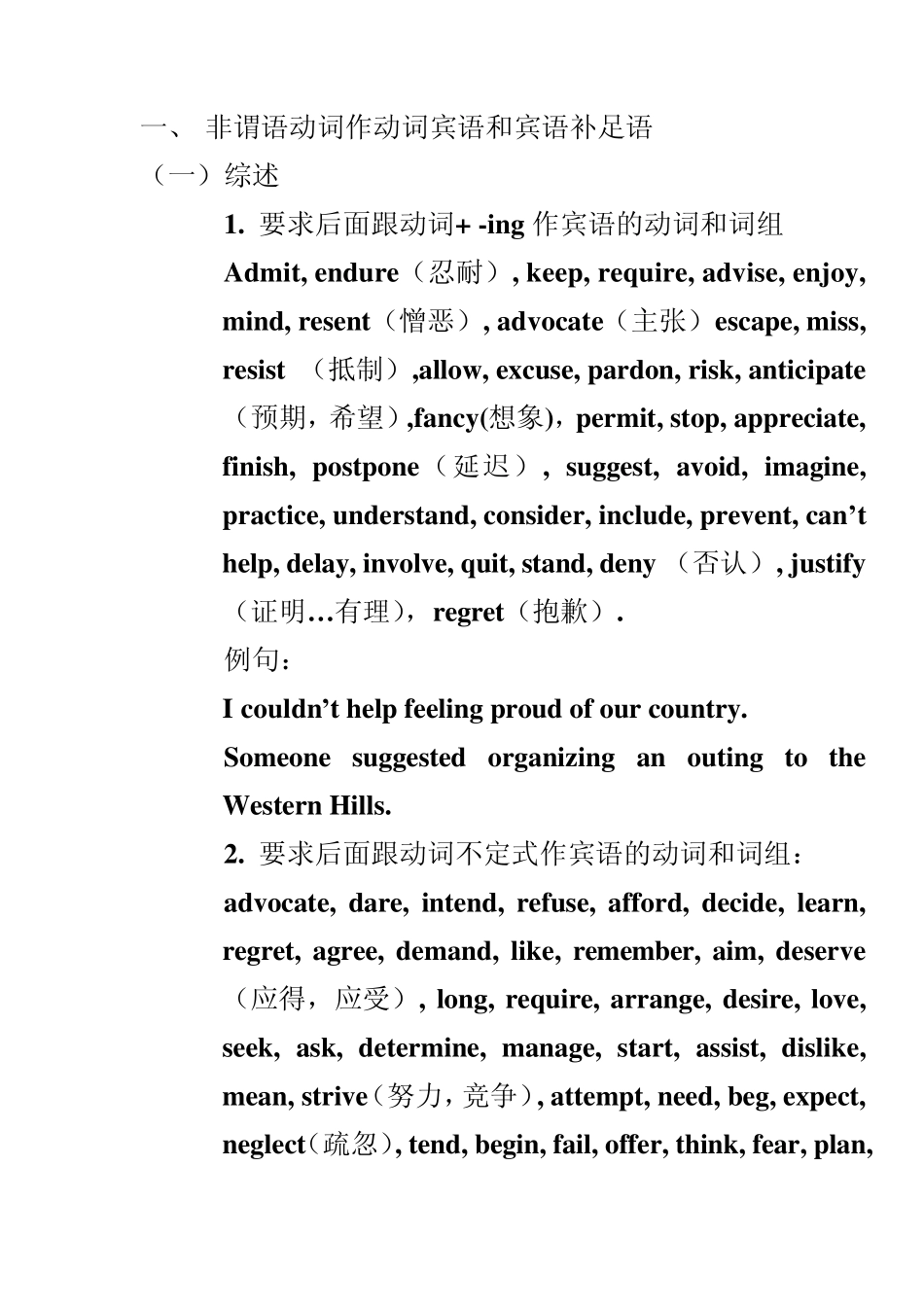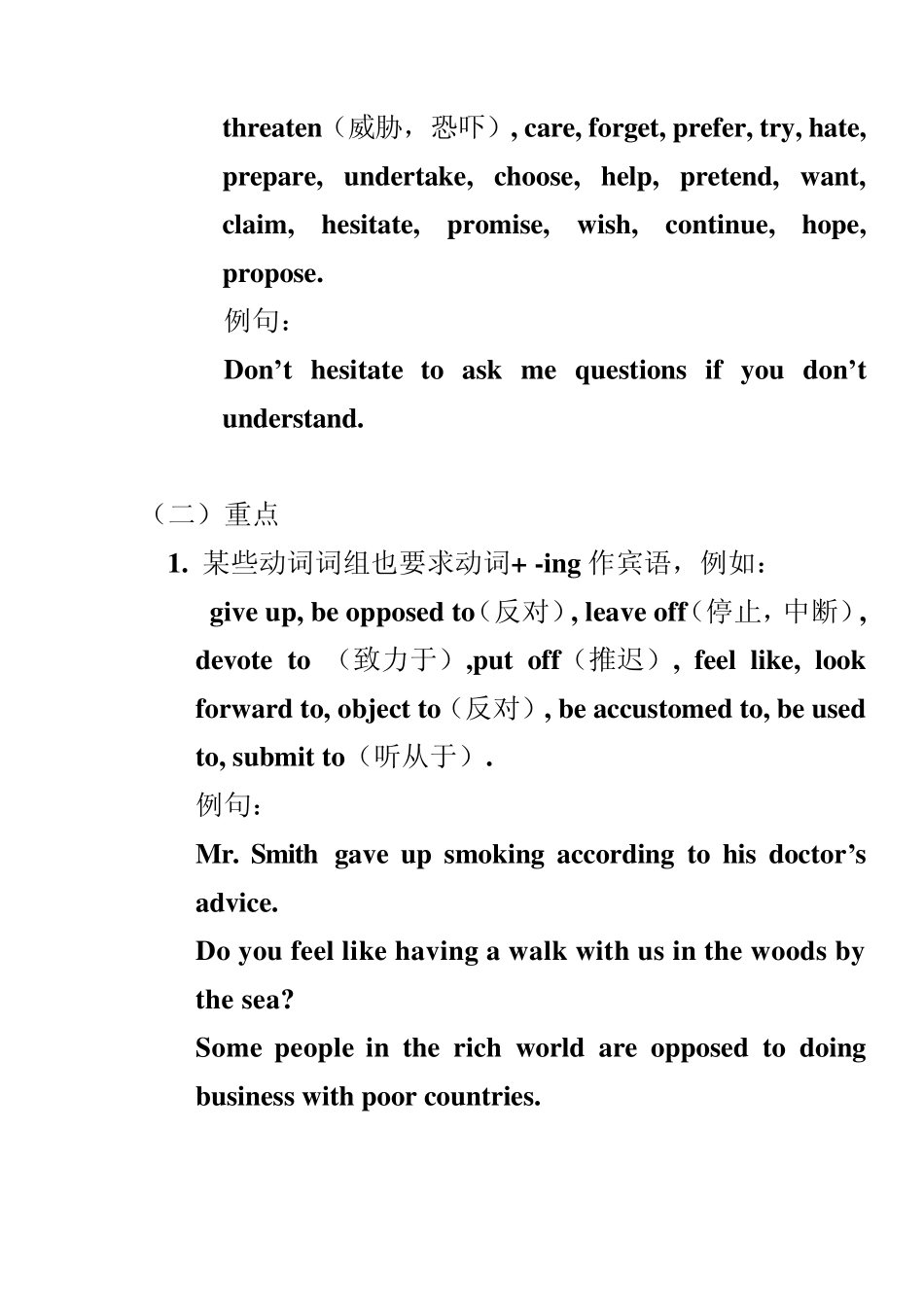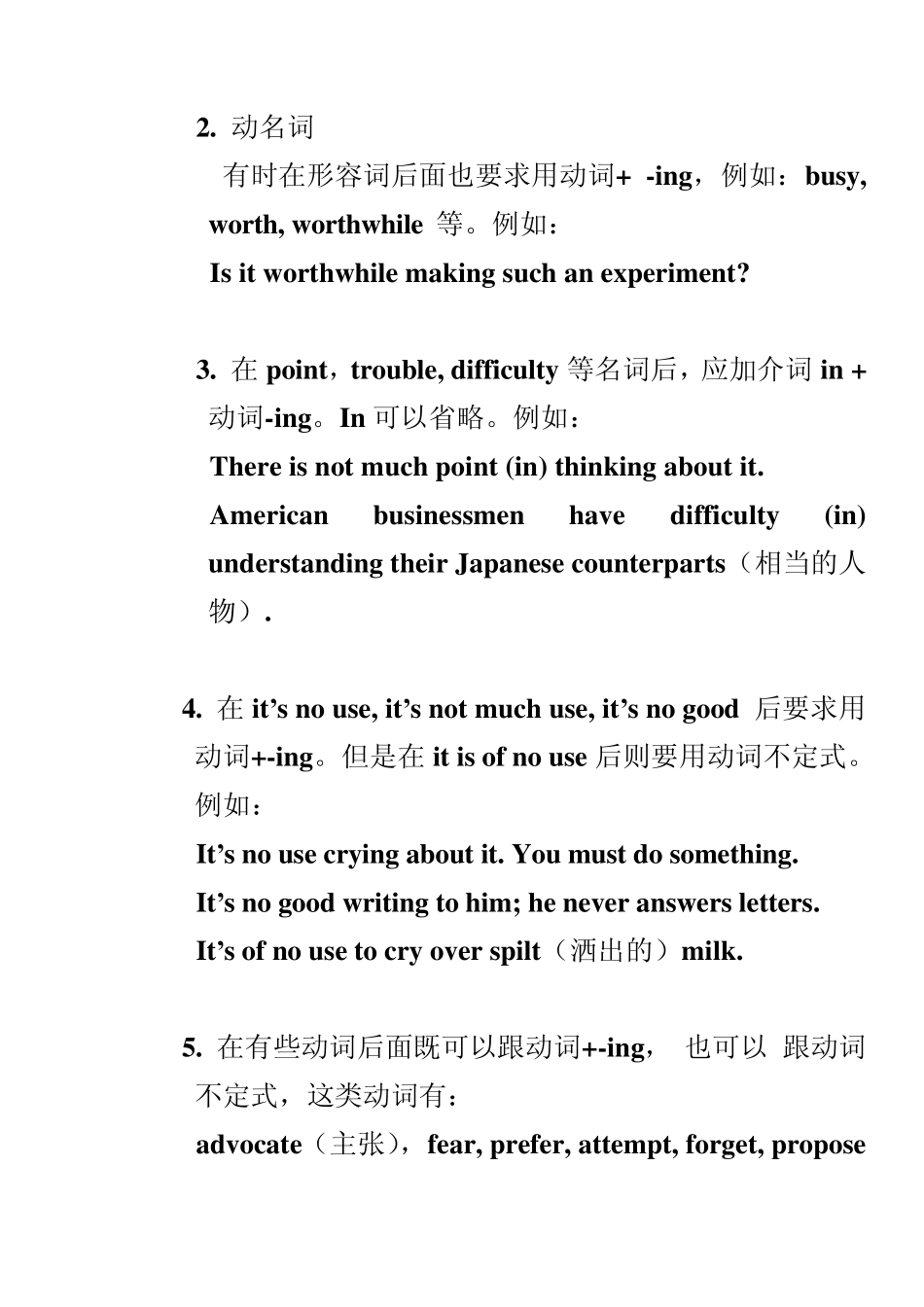一、 非谓语动词作动词宾语和宾语补足语 (一)综述 1. 要求后面跟动词+ -ing 作宾语的动词和词组 Admit, endure(忍耐), keep, require, advise, enjoy, mind, resent(憎恶), advocate(主张)escape, miss, resist (抵制),allow, excuse, pardon, risk, anticipate(预期,希望),fancy(想象),permit, stop, appreciate, finish, postpone(延迟), suggest, avoid, imagine, practice, understand, consider, include, prevent, can’t help, delay, involve, quit, stand, deny (否认), justify(证明… 有理),regret(抱歉). 例句: I couldn’t help feeling proud of our country. Someone suggested organizing an outing to the Western Hills. 2. 要求后面跟动词不定式作宾语的动词和词组: advocate, dare, intend, refuse, afford, decide, learn, regret, agree, demand, like, remember, aim, deserve(应得,应受), long, require, arrange, desire, love, seek, ask, determine, manage, start, assist, dislike, mean, strive(努力,竞争), attempt, need, beg, expect, neglect(疏忽), tend, begin, fail, offer, think, fear, plan, threaten(威胁,恐吓), care, forget, prefer, try, hate, prepare, undertake, choose, help, pretend, want, claim, hesitate, promise, wish, continue, hope, propose. 例句: Don’t hesitate to ask me questions if you don’t understand. (二)重点 1. 某些动词词组也要求动词+ -ing 作宾语,例如: give up, be opposed to(反对), leave off(停止,中断), devote to (致力于),put off(推迟), feel like, look forward to, object to(反对), be accustomed to, be used to, submit to(听从于). 例句: Mr. Smith gave up smoking according to his doctor’s advice. Do you feel like having a walk with us in the woods by the sea? Some people in the rich world are opposed to doing business with poor countries. 2. 动名词 有时在形容词后面也要求用动词+ -ing,例如:busy, worth, worthwhile 等。例如: Is it...


